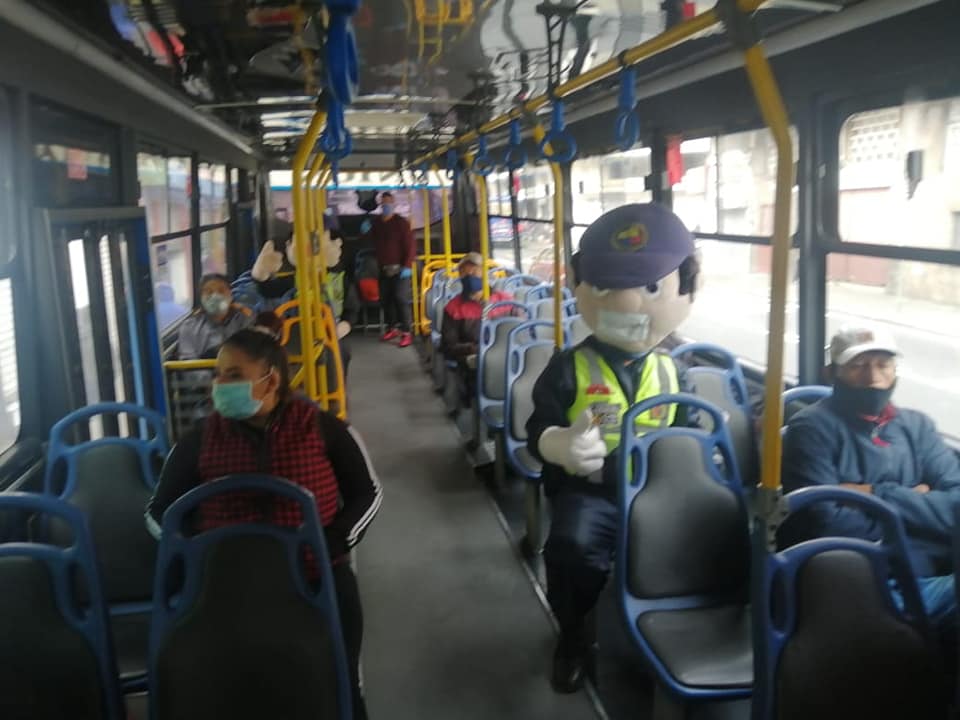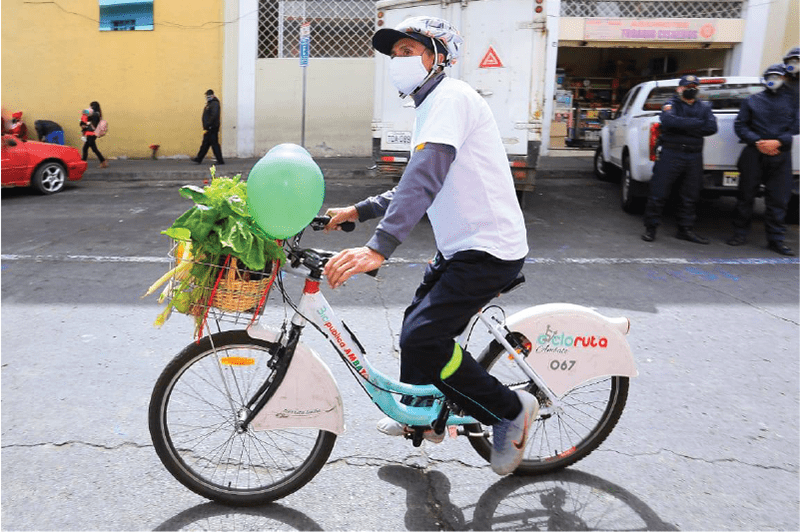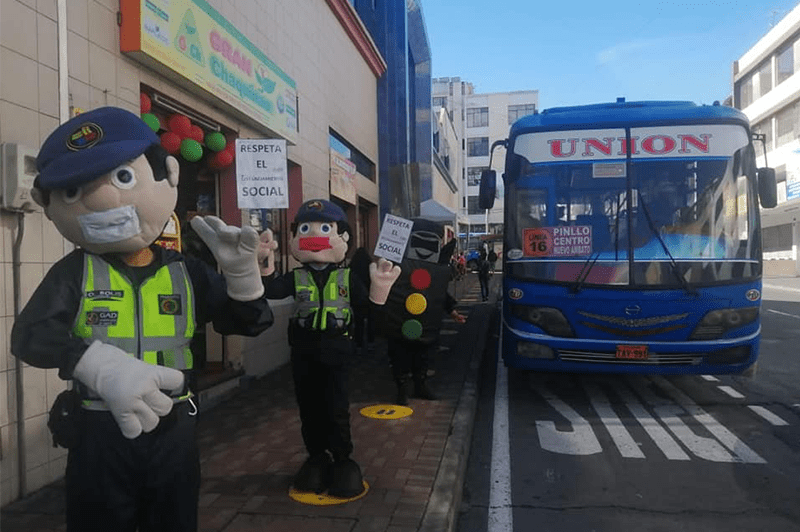In collaboration with EUROCLIMA+, the Ecuadorian city is planning long-term sustainable mobility.
Ambato, Ecuador, August 13, 2020.- The city of Ambato reinvents itself once again. Although the quarantine and curfew process used during the health emergency due to COVID-19 has been progressively loosened, mobility patterns have changed, affecting the use of mass public transport, which served 40% of the population.
Some of the greatest challenges in mobility have been to provide alternative modes of transport that are safe and accessible, as well as to improve the public's perception of Urban and Rural Public Transport services. In the words of the Mayor of Ambato, Dr. Javier Altamirano Sánchez, the municipality has the challenge of “ensuring mobility in which the biosecurity restrictions are met and also encouraging the use of other alternative methods of transport, such as the use of bicycles and walking”.

In view of this, the Municipality chose not only to apply contingent measures and developed an Emergent Mobility Plan to give coherence to the interventions and lay the foundations for the transition towards more sustainable mobility in the long term.
Even before the unforeseen event, the Ecuadorian city had been working on containing the unbridled growth of the automotive fleet and improving the quality of life of its inhabitants by updating its Sustainable Urban Mobility Plan (SUMP), a project that is part of the EUROCLIMA+ programme that is implemented by German Technical Cooperation (GIZ Ecuador), an implementing agency that works on behalf of the Ministry of Economic Cooperation and Development (BMZ) of the Federal Government of Germany.
“The MobiliseYourCity alliance, in addition to the EUROCLIMA+ programme and with the support of GIZ, has enabled the SUMP construction process to be launched and innovative measures to be taken in response to the new reality. Substantial changes are expected in the mobility, quality of life and capacities of the population as well as in the infrastructure", commented Esteban López Espinel, Traffic, Transport and Road Safety Coordinator of GAD Ambato.
With the challenges of the pandemic, the Emergent Plan contemplates two phases: first, the protocols and immediate actions necessary for the reactivation of mobility; and second, the actions and guidelines for the new normal.

During the health emergency, the Municipality of Ambato carried out two citizen surveys applied virtually to learn about their changes in mobility patterns. This revealed a greater predisposition of the people for active modes of mobility, so the second phase of the Emergency Plan includes the execution of a bicycle microcircuits pilot and another for pedestrian use in part of the city centre.
The results of the pilot will be used in the definition of the long-term SUMP packages. If the acceptance of these modes of transport is as favourable as predicted in the survey results, a definitive transition towards more sustainable modes of transport will be achieved. As a complementary measure to consolidate this process, the implementation of an additional pilot with the support of EUROCLIMA+ has been contemplated.
Another relevant aspect is that, due to the pandemic, the Municipality has had to measure in real time the behaviour of the demand for transportation, which will help change the focus of Ambato's SUMP. Planning will no longer be based on historical behaviour, but on a survey of possible scenarios for reconfiguring demand in the post-COVID-19 situation.
This will be done through innovative methods of data collection and analysis, which, while challenging, are aligned with another objective of the current administration, which aims to implement the Smart City concept using technology to achieve greater efficiency, as well as agile and flexible responses in a context of constant change.
“There is a direct link between the objectives of the municipality for its development and territorial planning, which are related to the objectives of sustainable development; and the project of the EUROCLIMA+ programme for sustainable development and mobility”, mentioned the Director of Territorial Management of GAD Ambato, Trajano Sánchez Rizzo.
In 1949, Ambato overcame great challenges after a major earthquake and with the cohesive effort of the people and the local authority, it positioned itself as the fourth most relevant city in Ecuador in economic terms. Now, beyond the socio-economic effects, the COVID-19 pandemic is once again being taken as an opportunity for Ambato to reinvent itself for the future: “I imagine a city with greater security, people moving around on public transport, strengthened use of bicycles, and people walking,” concluded the Mayor of the municipality.
For more information on the project “Updating the Transport and Mobility Master Plan for Ambato Canton, Ecuador”, click on the following link.
About EUROCLIMA+
EUROCLIMA+ is a programme financed by the European Union and co-financed by the Federal Government of Germany through the Federal Ministry for Economic Cooperation and Development (BMZ), as well as by the governments of France and Spain. It aims to reduce the impact of climate change and its effects in 18 Latin American and Caribbean countries by promoting climate change mitigation, adaptation, resilience and investment. The Programme is implemented under the synergistic work of seven agencies: the Spanish Agency for International Development Cooperation (AECID), the French Development Agency (AFD), the Economic Commission for Latin America and the Caribbean (ECLAC), Expertise France (EF), the International and Ibero-American Foundation for Administration and Public Policy (FIIAPP), the German Society for International Cooperation (GIZ), and UN Environment.
For more information:
This email address is being protected from spambots. You need JavaScript enabled to view it.
www.euroclimaplus.org

